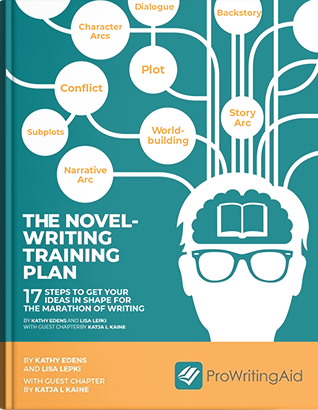
Did you bump your head recently?
I ask because since you’re reading this article, you must be a writer. Yet you could be doing anything else with your time. You could be welding or shopping or meditating or, I don’t know, learning to play the harmonica, but instead, you’ve elected to write. So I just want to make sure you’re in a rational state of mind.
Seriously though, I understand the itch. I have the same one myself. Writing is one of the most rewarding crafts one can devote one’s life to. But, to be honest, it can also be one of the most discouraging.
Every writer faces setbacks. This is an article for those times. When you’re feeling down about your writing career, when it seems like nothing is going your way, please read this article. I hope it helps you rekindle your love of writing.
Obscurity Is a Necessary Step on the Path
There is a time in virtually every writer’s career when they feel like they’re writing for no one. You might write books and publish them independently, yet only sell them to a handful of readers. You might spend four hours writing an article that’s read by four people. At some point, almost all writers wonder why they’re working so hard for so little payoff.
I believe obscurity is a test. Some writers discover fame rapidly; their debut novels are adored by critics and fans alike. But far more writers work in obscurity for years. Over time, that consistent hard work helps them find their audience.
None of us have control over when this happens. If we did, we’d all do it a lot faster. And though there are no guarantees we’ll become the authors we want to be, we can increase our chances as much as possible.
That means writing. That means putting in the work. That means creating and improving our skills every day. Who cares if no one knows about it? We’re writers because we love to write, not because we want to be famous. If that’s all you’re looking for, there are easier ways.
I firmly believe that success in any field requires constant and perhaps illogical dedication. There are those who turn back because the grind becomes too hard, and there are those who become successful because they had chances to turn back but never did. Set your goals and work at them every day. Enjoy the ride.
It’s Okay to Feel the Way You Feel
Jealousy. Frustration. Disappointment. Every writer has experienced those emotions before. If you’re feeling them, it’s not because you’re a bad person. It’s because you care about writing. After all, if it didn’t matter that much to you, you’d just move on to something else!
I’ll give you an example. I recently found myself feeling jealous of a writer friend who’s been more productive than me lately. I didn’t like that feeling. Since this writer’s a friend, I even felt guilty for feeling jealous—yet both feelings endured.
Why can’t you just be happy for him? I thought to myself. He works really hard. You should admire that, not envy it!
The mistake here, I think, was not allowing myself to experience my feelings. Therapists often say that feelings aren’t right or wrong—it’s your subsequent actions that can be judged. I like that thought. It wasn’t necessarily wrong of me to be jealous of my friend. It would be wrong if I acted on that jealousy by sending him a nasty email or something. But the feeling itself is just that—a feeling.
If you have negative feelings linked to your writing, don’t beat yourself up about it. That will only make you feel worse. Acknowledge the negative feelings and ask yourself why you’re experiencing them. Then decide how to act on them. You might find that those negative feelings produce positive actions.
I did. I found that my jealousy made me feel competitive, and actually spurred my own productivity. I want to work just as hard as my friend, and that’s going to help me write more.
Remember the Value of Imaginative Play
I’m reading a fantastic book of writing advice right now. It’s called Wonderbook and it’s by Jeff VanderMeer (along with many other contributing writers and illustrators).
In one of the earliest chapters, VanderMeer emphasizes the importance of imaginative play:
"When unburdened by the need to put words on a page, the imagination often appears as a form of love and sharing: playful, generous, and transformative. The best fiction is often driven by this invisible engine, which hums and purrs and sighs. It’s this flicker, or flutter, at the heart of good stories that animates them, and this movement—ever different, ever unpredictable—that makes each story unique."
When we get discouraged about writing, it might be because we’re not having fun with it. We might need to try more imaginative play.

Let’s let our minds wander. Let’s allow ourselves to play. As VanderMeer goes on to say in his book, part of the reason we do this is to let our brains know that any idea is admissible.
If we dismiss ideas because they seem silly, or worse, we dismiss them because they do not seem commercially viable, we are uprooting the plant before it has time to bloom, so to speak. Imagine how beautiful it might’ve grown, if only we’d given it a chance.
That’s the concept behind imaginative play. Let your ideas grow, no matter how strange they may seem. I’ll give you an example.
I’m probably not the first person to notice this, but the name Santa is dangerously close to the name Satan. That made me laugh, so I wrote it down in my idea book (if you do not have a little notebook to collect random thoughts like this, I highly recommend it).
Sometime later, I was looking for a palate cleanser to work on between chapters of my current novel and I happened upon this note. It honestly didn’t seem like much, just a funny coincidence. However, I’d just read about the topic of imaginative play. So I tried writing a story based on this concept.
It ended up being an absolute blast. In the finished story, two kids try to summon Satan, but they spell his name wrong and end up summoning Santa instead. I sent it to my newsletter subscribers at Christmas, and it got a warm reception.
Did this story earn me wads of cash? Nope. Has it made me famous? Definitely not (the closest I get to being famous is when I feed my dog dinner, and that has nothing to do with writing). But this story did two very important things. First, it trained my brain to pursue seemingly unlikely avenues of story. Second, and perhaps most importantly, I truly enjoyed writing it. It was a simple, entertaining story that reminded me why I love this craft so much.
In Conclusion
Writing isn’t all fun all the time. Rejection, obscurity, disappointment, criticism—we’ll encounter them all. Next time you do, I hope this article helps you.
You can accomplish anything you set out to do. Just keep writing.


